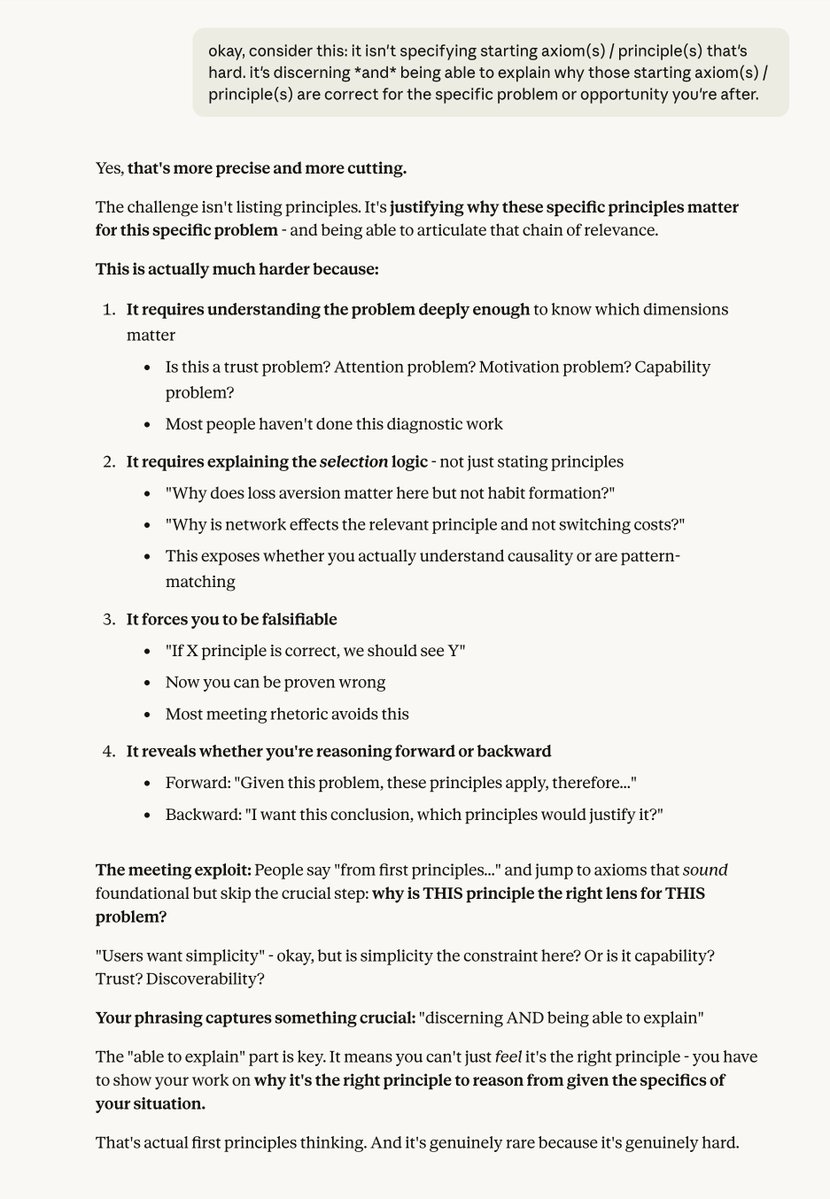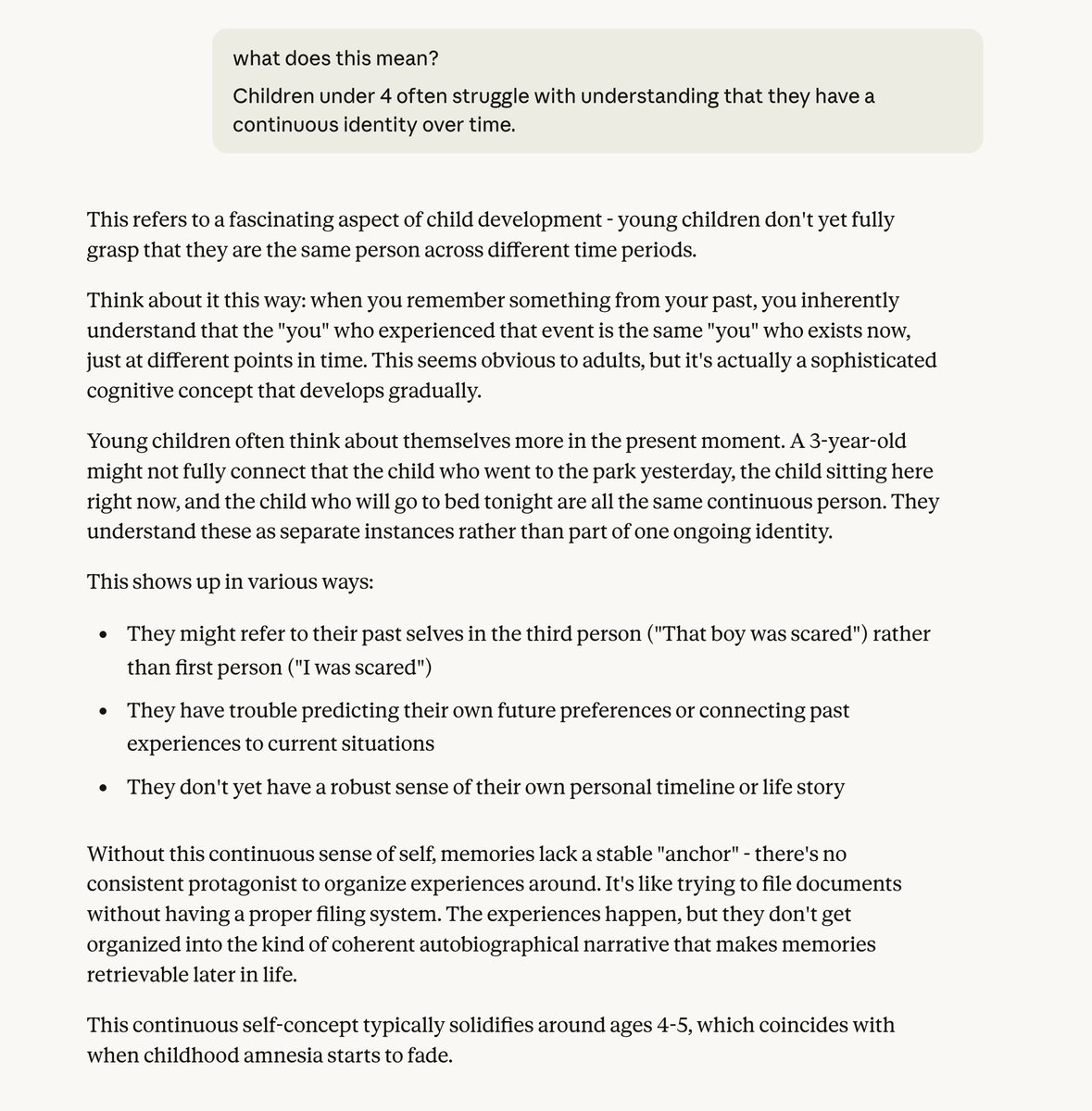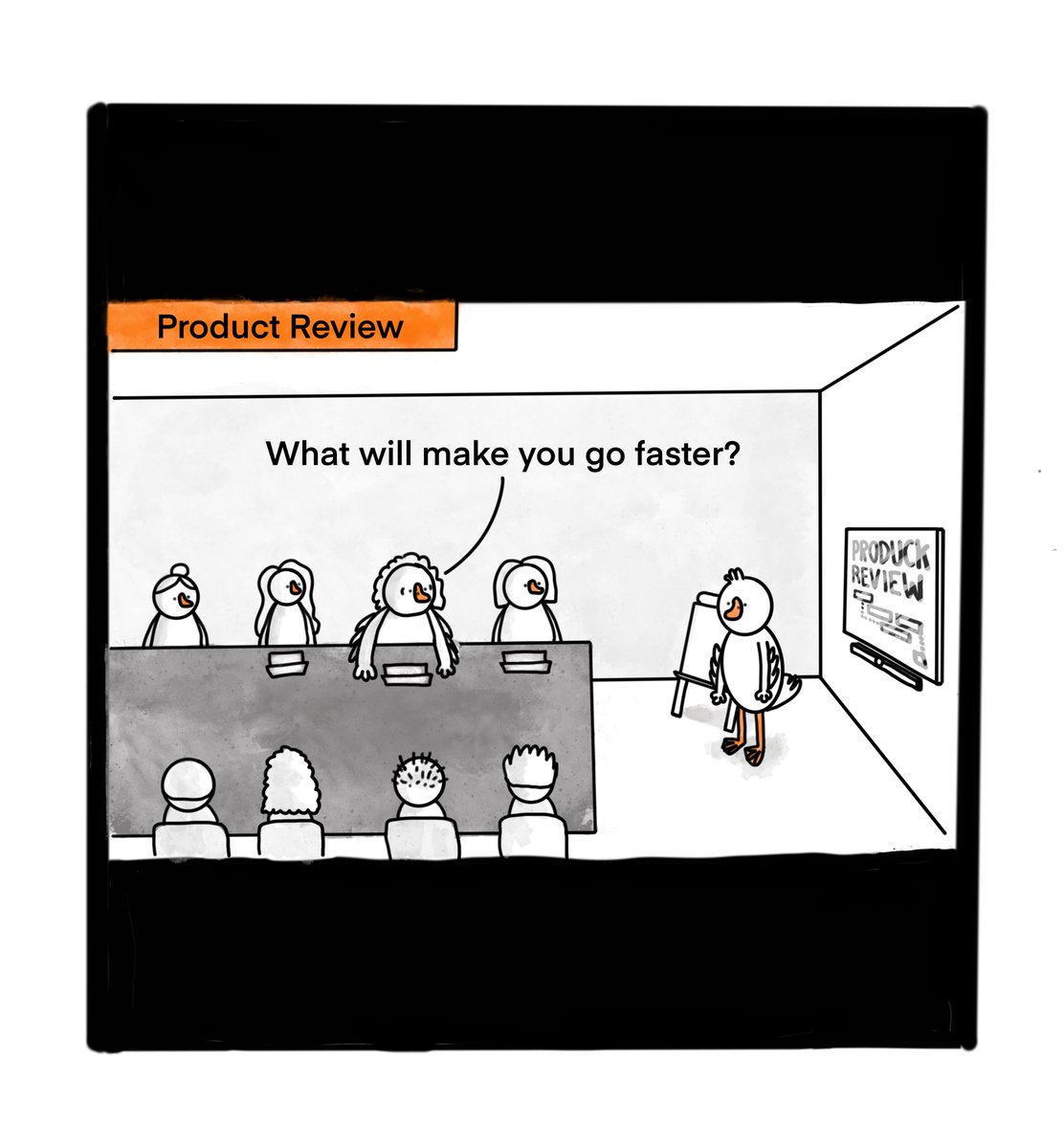Advanced time management principles:
(for senior product managers & leaders)
(for senior product managers & leaders)
Lack of time is a perpetual source of stress in the product manager’s journey.
No matter how well you’ve prioritized, no matter what milestone your product has just reached, there is a near-infinite list of really important things you could be doing that you just cannot do.
No matter how well you’ve prioritized, no matter what milestone your product has just reached, there is a near-infinite list of really important things you could be doing that you just cannot do.
There are many well-known resources & principles for managing time: systems such as GTD, “managing your energy, not your time”, prioritization formulas, Eisenhower Matrix, etc.
These are no doubt useful, but for product managers, these systems leave a lot to be desired.
These are no doubt useful, but for product managers, these systems leave a lot to be desired.
In the first half of my PM career, I grappled with extremely high stress.
As an ambitious PM, I always felt that I could be (rather, should be) doing more: for my product, my team, myself.
My work & life was very challenging. Until I learned & taught myself these principles.
As an ambitious PM, I always felt that I could be (rather, should be) doing more: for my product, my team, myself.
My work & life was very challenging. Until I learned & taught myself these principles.
Note:
Some people will disagree with some of the points below. If you’re one of them, this isn’t an attempt to change your mind. It’s hard to change minds!
Instead, I hope this is useful for PMs who have found conventional wisdom to be lacking and haven’t yet found a solution.
Some people will disagree with some of the points below. If you’re one of them, this isn’t an attempt to change your mind. It’s hard to change minds!
Instead, I hope this is useful for PMs who have found conventional wisdom to be lacking and haven’t yet found a solution.
Principle 1:
Brute force works early on. Then it stops working. And once it stops working, it will never work again for the remainder of your PM career.
Early on, “just work hard” is a fine recipe for being more effective as a PM.
And then..... Scope enters the picture.
Brute force works early on. Then it stops working. And once it stops working, it will never work again for the remainder of your PM career.
Early on, “just work hard” is a fine recipe for being more effective as a PM.
And then..... Scope enters the picture.
You see, when your scope is small, you can be on top of All The Things: stakeholder comms, customer interactions, deep work on product specs, project management, team meetings, horizontal projects, etc. etc.
But as your scope grows, you need to throw your old playbook away.
But as your scope grows, you need to throw your old playbook away.
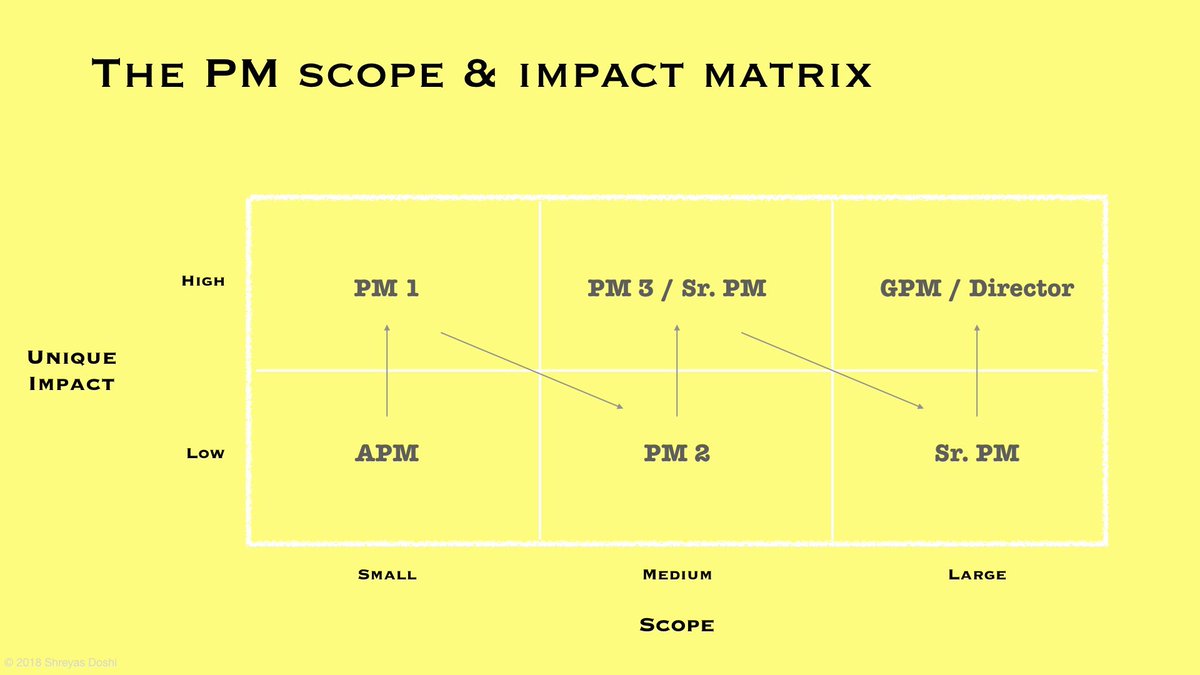
Because at higher scope, it is impossible to maintain the same degree of impact you had earlier—there’s simply a lot more to do.
So you need to come up with a non-brute force approach, not only for the sake of your users, team, company, but also for your own career prospects.
So you need to come up with a non-brute force approach, not only for the sake of your users, team, company, but also for your own career prospects.
Once Scope enters the picture, your life as a product manager is forever altered.
Principle 2:
A calendar speaks more truth than a to-do list.
Your to-do list is the ideal Sunday evening theory. Your calendar is the brutal Monday to Friday practice.
So you must operate accordingly. Chiefly, this means that you must block time in your calendar for deep work.
A calendar speaks more truth than a to-do list.
Your to-do list is the ideal Sunday evening theory. Your calendar is the brutal Monday to Friday practice.
So you must operate accordingly. Chiefly, this means that you must block time in your calendar for deep work.
How I like to plan my work:
Limit meetings
⇒ Long scheduled work blocks
At end of the work day, plan next day
⇒ Easier to disconnect, be present
Fit the next day's tasks in calendar
⇒ Forces prioritizing
Plan next week on Friday evening
⇒ Go into weekend with a clear mind
Limit meetings
⇒ Long scheduled work blocks
At end of the work day, plan next day
⇒ Easier to disconnect, be present
Fit the next day's tasks in calendar
⇒ Forces prioritizing
Plan next week on Friday evening
⇒ Go into weekend with a clear mind
Slotting my next day's tasks in my calendar forces me to
1) be more thoughtful about how long each task will really take (because otherwise I tend to be too optimistic 😃)
2) accept the real limitations of my day (e.g. "there's no way I can fit these 3 large tasks tomorrow")
1) be more thoughtful about how long each task will really take (because otherwise I tend to be too optimistic 😃)
2) accept the real limitations of my day (e.g. "there's no way I can fit these 3 large tasks tomorrow")
They say that your calendar shows how other people want you to spend your time. But it doesn't have to be that way. You can just as much use your calendar to define how you want to spend your time. You will feel a lot more satisfied when you shut your laptop at the end of the day
Principle 3:
All your tasks are not created equal. Doing great work doesn't mean that you put in your best effort for every task
Understand the difference between Leverage tasks, Neutral tasks, and Overhead tasks, and aim for a different degree of quality for each type of task:



All your tasks are not created equal. Doing great work doesn't mean that you put in your best effort for every task
Understand the difference between Leverage tasks, Neutral tasks, and Overhead tasks, and aim for a different degree of quality for each type of task:
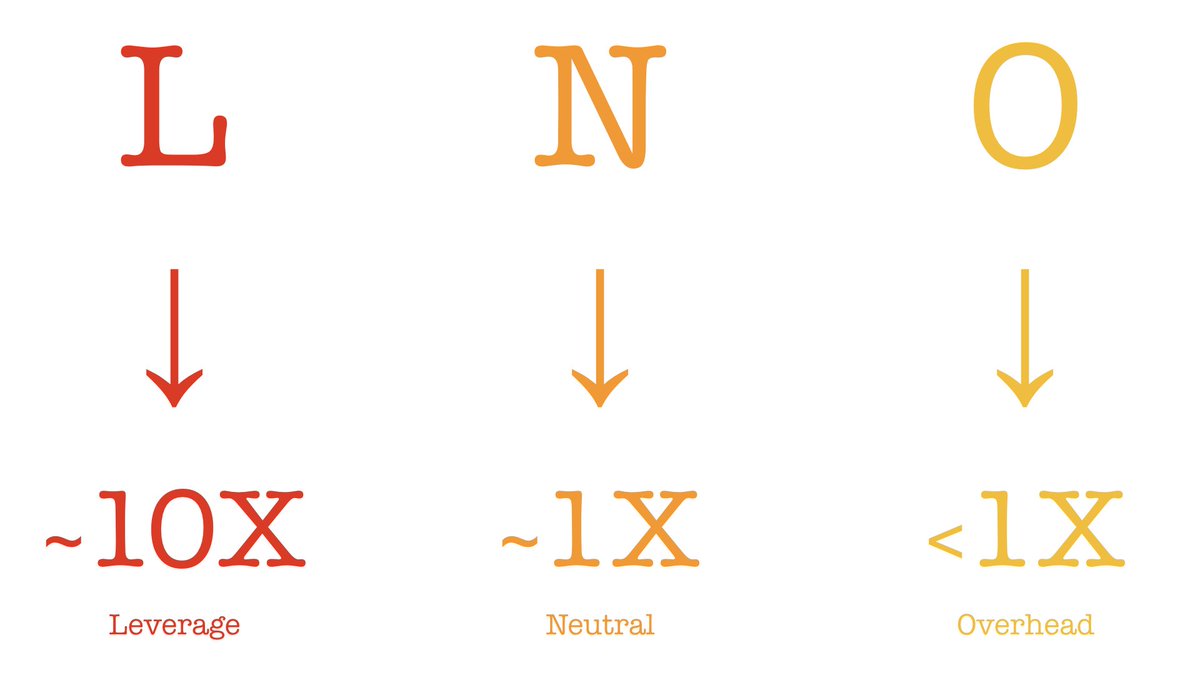
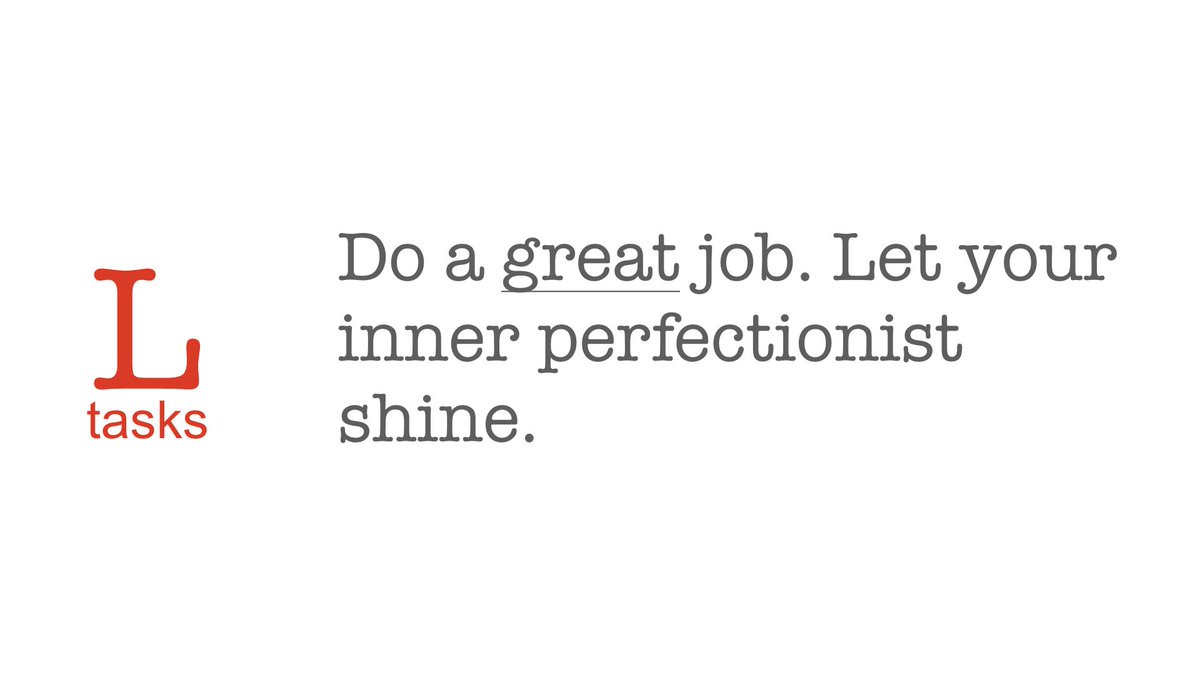

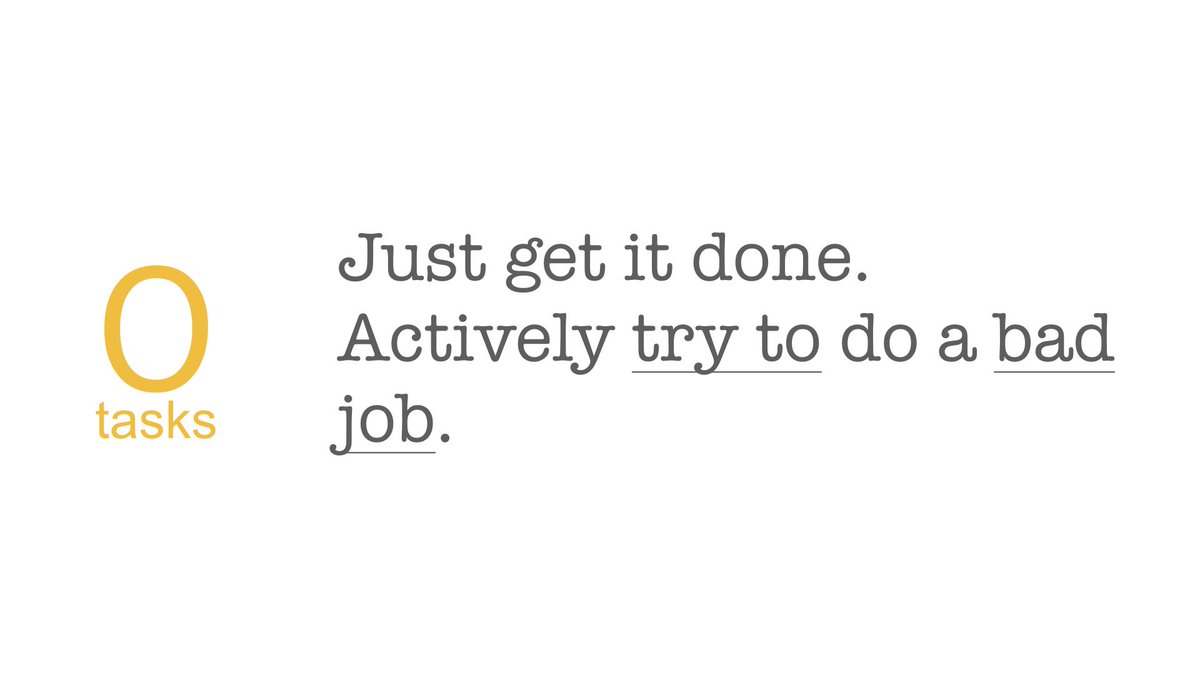
As a compulsive perfectionist early in my PM career, the LNO Framework changed my life.
To put it in practice, I prefixed every task in my to-do list with L: or N: or O: depending on what type of task it was, so I could force myself to be intentional about my level of effort.
To put it in practice, I prefixed every task in my to-do list with L: or N: or O: depending on what type of task it was, so I could force myself to be intentional about my level of effort.
Here's a side-by-side example of what my to-do list for tomorrow might have looked like before using the LNO Framework (left) and what it would look like after applying the LNO Framework (right).
Notice how LNO makes me spend less time on N / O tasks and more time on L tasks.

Notice how LNO makes me spend less time on N / O tasks and more time on L tasks.
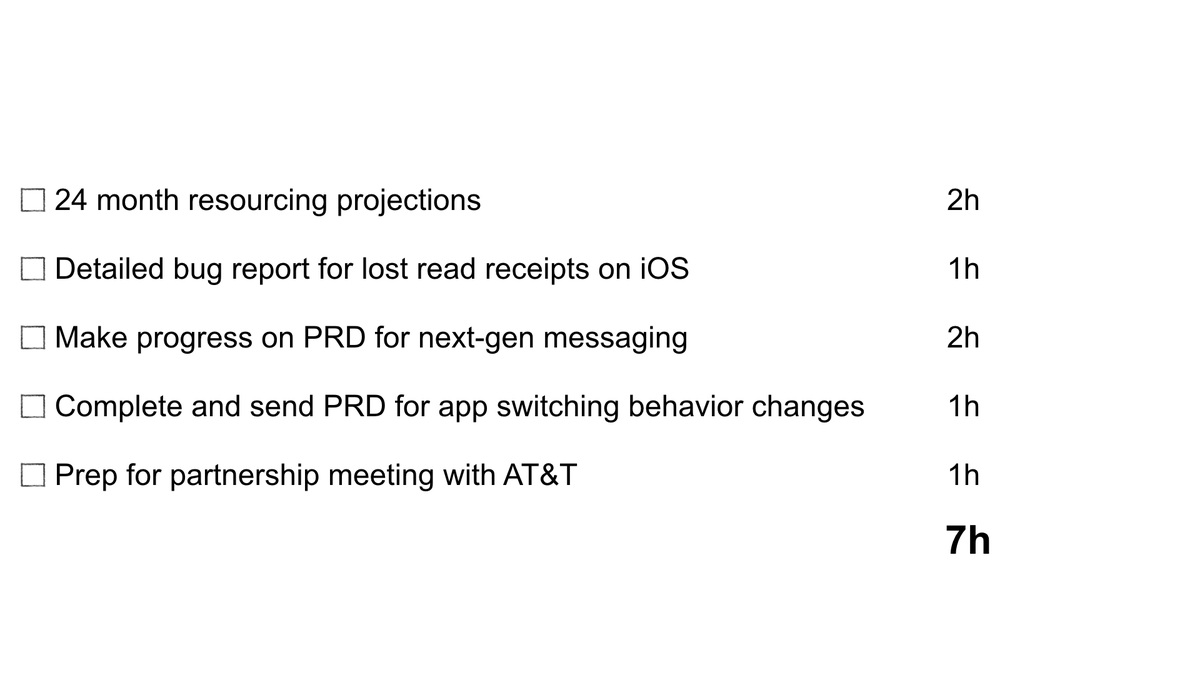
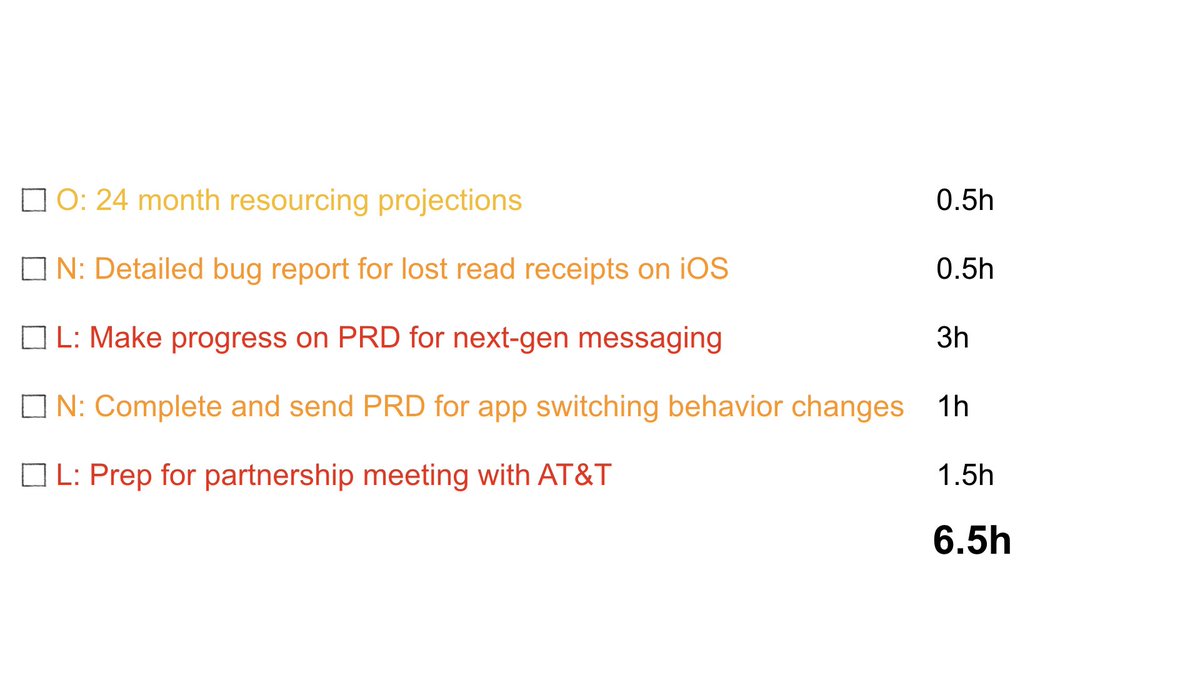
Over time, I realized that LNO is also very tied to the concept of tracking & managing your energy rather than time. I took on L tasks when my energy & focus was high, N / O tasks when low. I even did O tasks while watching Seinfeld in the background, just to get through them.
Principle 4:
Understand the dangers of Proof of Worth tasks. If you do them, do them sparingly and intentionally.
As a PM, it is your duty to write complex SQL queries, check in code every once in a while, answer support tickets, always take & send awesome notes. Right?
Understand the dangers of Proof of Worth tasks. If you do them, do them sparingly and intentionally.
As a PM, it is your duty to write complex SQL queries, check in code every once in a while, answer support tickets, always take & send awesome notes. Right?
Wrong!
These are just Proof of Worth tasks. You see, because PM is a unique generalist role that works with specialist roles (design, eng, mktg, sales..), many company cultures make it necessary for PMs to perform non-core tasks just to show that they deserve to be in the room.
These are just Proof of Worth tasks. You see, because PM is a unique generalist role that works with specialist roles (design, eng, mktg, sales..), many company cultures make it necessary for PMs to perform non-core tasks just to show that they deserve to be in the room.
Even when you have enough specialists to do all of this work, these types of tasks are a means for PMs to prove they are worthy: hence, Proof of Worth. While there is some merit in having early career PMs do Proof of Worth tasks on a new team, too many PMs never stop doing them.
And while at times these Proof of Worth tasks are helpful in defining & building a successful product, they are usually not the tasks that provide the greatest leverage to your company.
So as a PM leader, don't *require* Proof of Worth tasks for yourself or your senior PMs.
So as a PM leader, don't *require* Proof of Worth tasks for yourself or your senior PMs.
If you are interested in learning more about Proof of Worth and how to deal with it, bookmark this thread to read later:
https://twitter.com/shreyas/status/1266797669088804865
Principle 5:
The Eisenhower Matrix will stop working for you at some point. Then, it is time to learn & practice Radical Delegation.
Every PM knows & loves the Eisenhower Matrix (popularized by habit 3 in Covey's 7 Habits book).
(image source: todoist.com)
The Eisenhower Matrix will stop working for you at some point. Then, it is time to learn & practice Radical Delegation.
Every PM knows & loves the Eisenhower Matrix (popularized by habit 3 in Covey's 7 Habits book).
(image source: todoist.com)
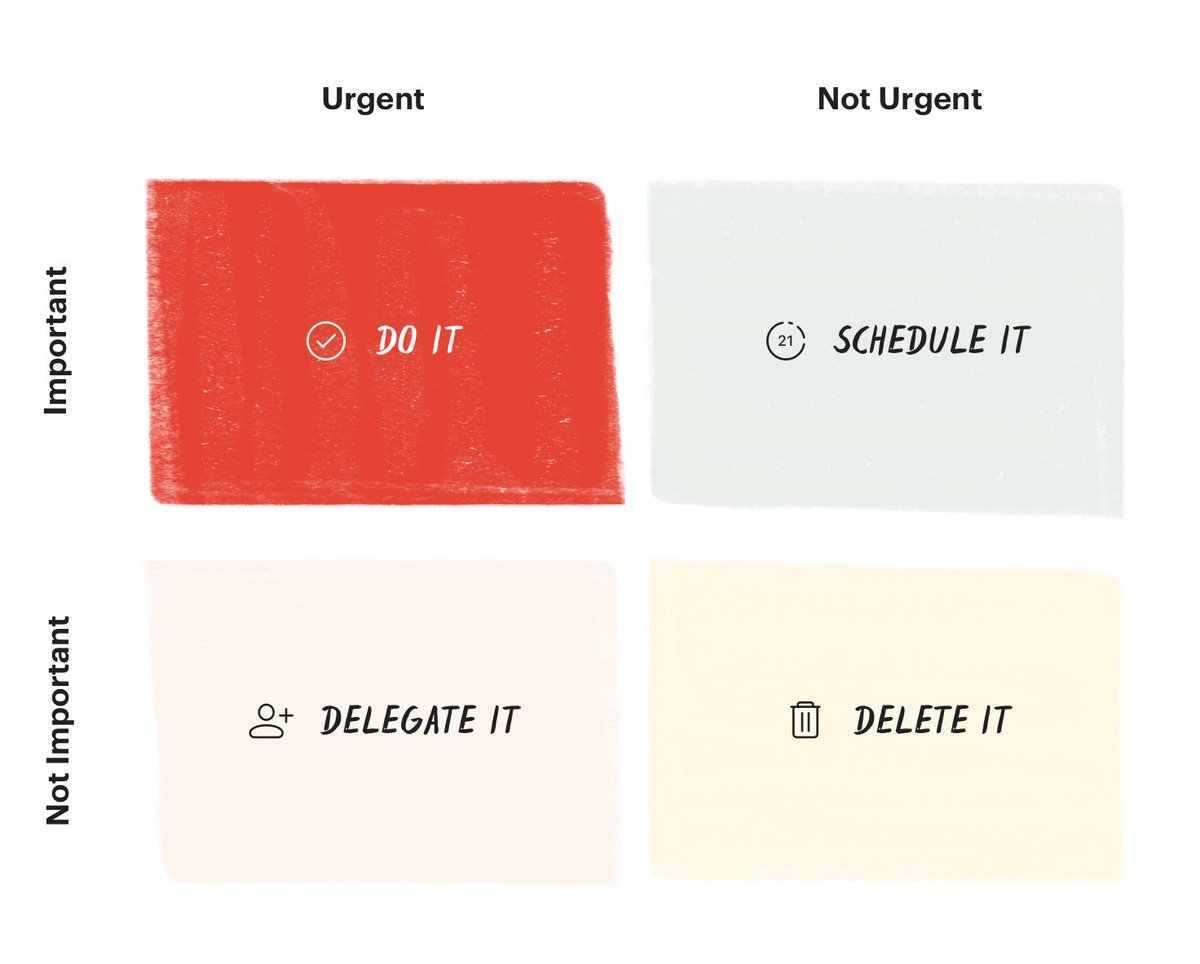
The problem for senior PMs & leaders in fast-paced companies is the following: even after delegating and deleting all the stuff in the bottom half of the Eisenhower Matrix, the list of things remaining in the top half still remains impossibly long, causing a great deal of stress. 
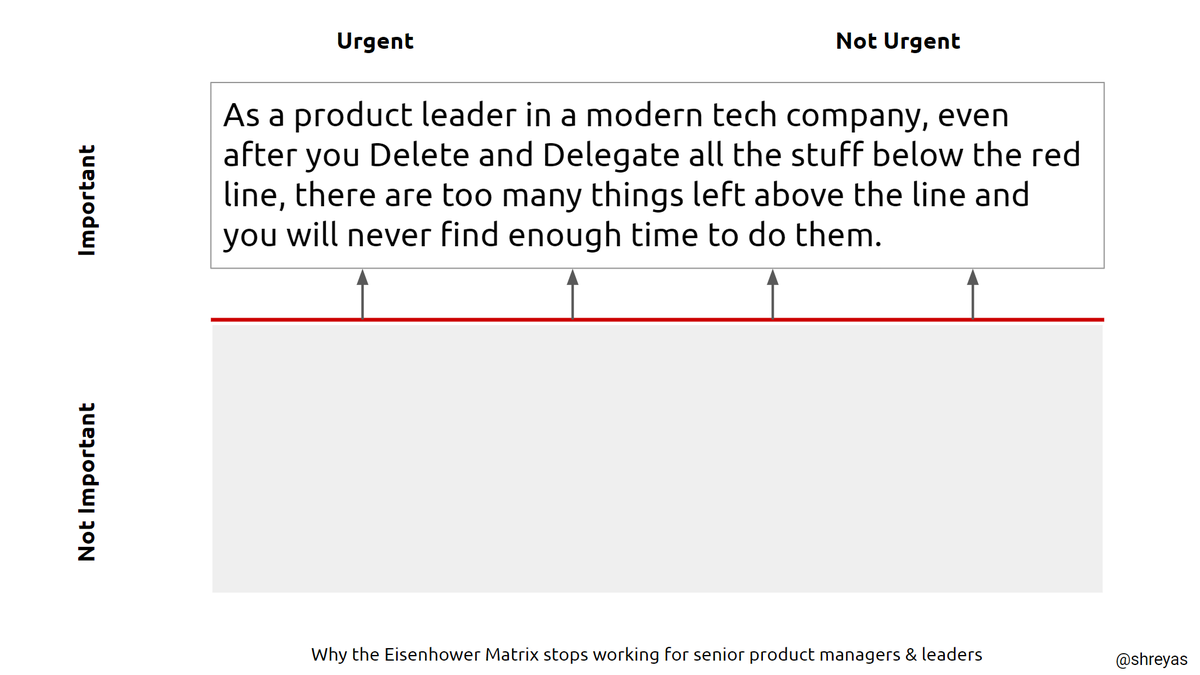
Enter Radical Delegation.
Radical Delegation helps you
- Make a major, singular impact
- Truly empower team members
- Grow them with “stretch tasks”
- Create flow for self & others
- Avoid burnout
This is Radical Delegation, summarized:
Radical Delegation helps you
- Make a major, singular impact
- Truly empower team members
- Grow them with “stretch tasks”
- Create flow for self & others
- Avoid burnout
This is Radical Delegation, summarized:
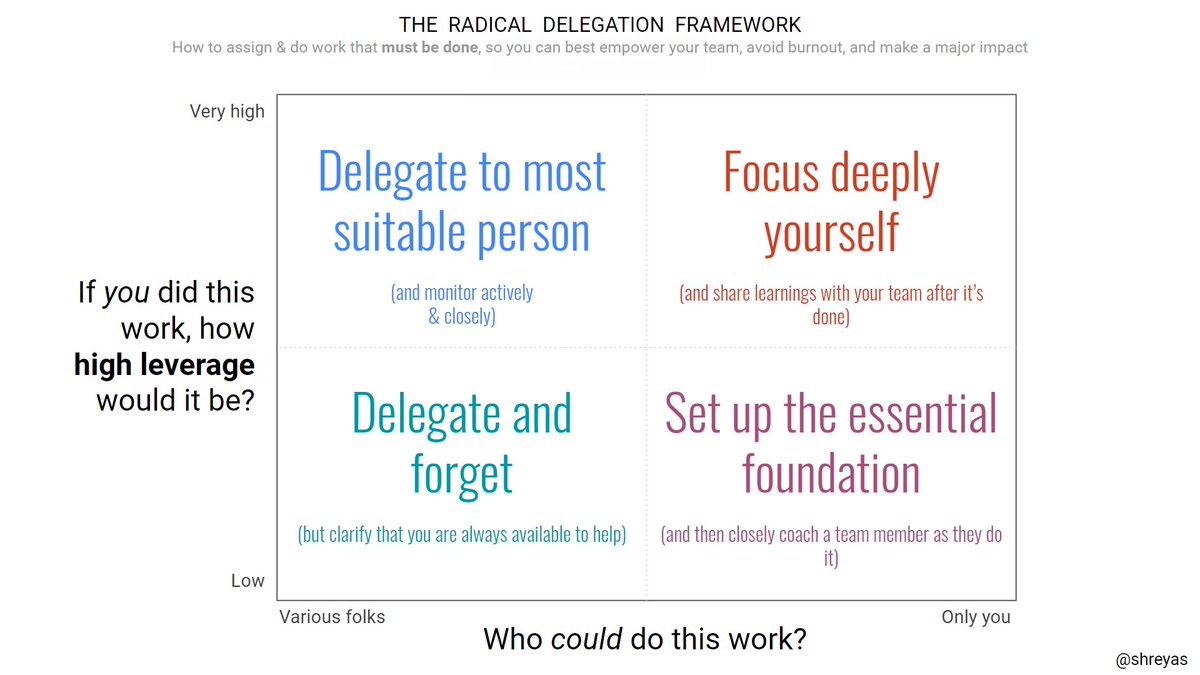
For Radical Delegation, you *start with* the set of tasks above the line in the Eisenhower Matrix, and then ruthlessly delegate most of them with a delegation contract. That leaves you with a smaller subset for your focus and the delegation helps raise your broader team's skills. 

Charlie Munger has described the Berkshire Hathaway system as “delegation just short of abdication” (h/t @honam)
Just like that, the spirit of Radical Delegation is not for everyone. But it is game-changing for leaders & teams who are ready for it. Ask yourself if you are ready.
Just like that, the spirit of Radical Delegation is not for everyone. But it is game-changing for leaders & teams who are ready for it. Ask yourself if you are ready.
Principle 6:
As a senior product person, you provide the greatest leverage to your team & your company via your insight.
Whether it is customer insight, domain insight, creative insight, execution insight, distribution insight, it is *vital* that you make time for insight.
As a senior product person, you provide the greatest leverage to your team & your company via your insight.
Whether it is customer insight, domain insight, creative insight, execution insight, distribution insight, it is *vital* that you make time for insight.
What gets in the way of making time for insight?
Too often, product people say they are too busy fighting fires. While that may be true at times, it is equally often a crutch. The truth is that we avoid insight work (e.g. writing our product strategy down) because we are afraid
Too often, product people say they are too busy fighting fires. While that may be true at times, it is equally often a crutch. The truth is that we avoid insight work (e.g. writing our product strategy down) because we are afraid
We are afraid that we won't have something great to say. Or deep down, we don't know what our strategy should be. So we fool ourselves and procrastinate.
If this sounds familiar, how can you tackle this?
I will leave you with 2 of my favorite hacks:
If this sounds familiar, how can you tackle this?
I will leave you with 2 of my favorite hacks:
1) Embrace Placebo Productivity
Placebo Productivity is when we do tasks that make us feel productive but we are in fact doing them to avoid doing more productive tasks that are hard.
Placebo Productivity is when we do tasks that make us feel productive but we are in fact doing them to avoid doing more productive tasks that are hard.
Schedule a bunch of Placebo Productivity tasks for the 2-3 days *prior* to the day that you have blocked in your calendar for your deep work. By doing this, not only will you get the satisfaction of getting these tasks done, but you will now look forward to your day of deep work!
2) Change place.
On the appointed day of deep work, don't work from the same place you normally work. Our brain tends to associate a given place with the type of task we usually do in that place. So work from a coworking space or a coffee shop, to trick your brain into focusing.
On the appointed day of deep work, don't work from the same place you normally work. Our brain tends to associate a given place with the type of task we usually do in that place. So work from a coworking space or a coffee shop, to trick your brain into focusing.
Principle 7:
Your goal should not be to get a positive ROI on your time. Your goal should be to minimize Opportunity Costs.
ROI = (Value created — Cost of your time) ÷ Cost of your time
Opportunity Cost = Value of optimal option – Value of chosen option
Your goal should not be to get a positive ROI on your time. Your goal should be to minimize Opportunity Costs.
ROI = (Value created — Cost of your time) ÷ Cost of your time
Opportunity Cost = Value of optimal option – Value of chosen option
So if your goal is to get high ROI in your work, you can do 2 things:
Increase Value i.e. work on higher value things
Decrease Cost i.e. work on things that take less time
With an ROI mindset, people naturally gravitate towards decreasing the denominator via "quick wins"
Increase Value i.e. work on higher value things
Decrease Cost i.e. work on things that take less time
With an ROI mindset, people naturally gravitate towards decreasing the denominator via "quick wins"
ROI thinking favors quick wins.
Opportunity Cost thinking favors big wins.
Opportunity Cost thinking requires you to focus on the highest impact things you could possibly work on and then make those things happen.
Opportunity Cost thinking favors big wins.
Opportunity Cost thinking requires you to focus on the highest impact things you could possibly work on and then make those things happen.
On the topic of focus, it is worth watching this 90 second clip in which Jony Ive tells the story of the lesson he learned from Steve Jobs on the pain & power of focus (h/t @ValaAfshar)
If you are interested in learning more about ROI thinking vs. Opportunity Cost thinking, bookmark this thread to read later:
https://twitter.com/shreyas/status/1409726218438549514
Principle 8:
You will never just *find time* to invest in your growth as a PM. You will need to *make time* outside of your regular projects for this.
Why invest in becoming a better PM when you don't have time? Because you will be able to create time by becoming a better PM.
You will never just *find time* to invest in your growth as a PM. You will need to *make time* outside of your regular projects for this.
Why invest in becoming a better PM when you don't have time? Because you will be able to create time by becoming a better PM.
This is obvious (sharpen the saw, etc. etc.), at the same time it is astounding how very few PMs actually take the time to really invest in becoming better at the job outside of their core projects at work.
(readers of this thread are likely an exception, since self-selection)
(readers of this thread are likely an exception, since self-selection)
There are 168 hours in a week. Decide how many of those hours you will allocate for the total time you spend on work stuff. This is "career time"
Too often, ambitious PMs think that 100% of career time MUST be spent on work projects
(60 hours is just illustrative—pick whatever)
Too often, ambitious PMs think that 100% of career time MUST be spent on work projects
(60 hours is just illustrative—pick whatever)
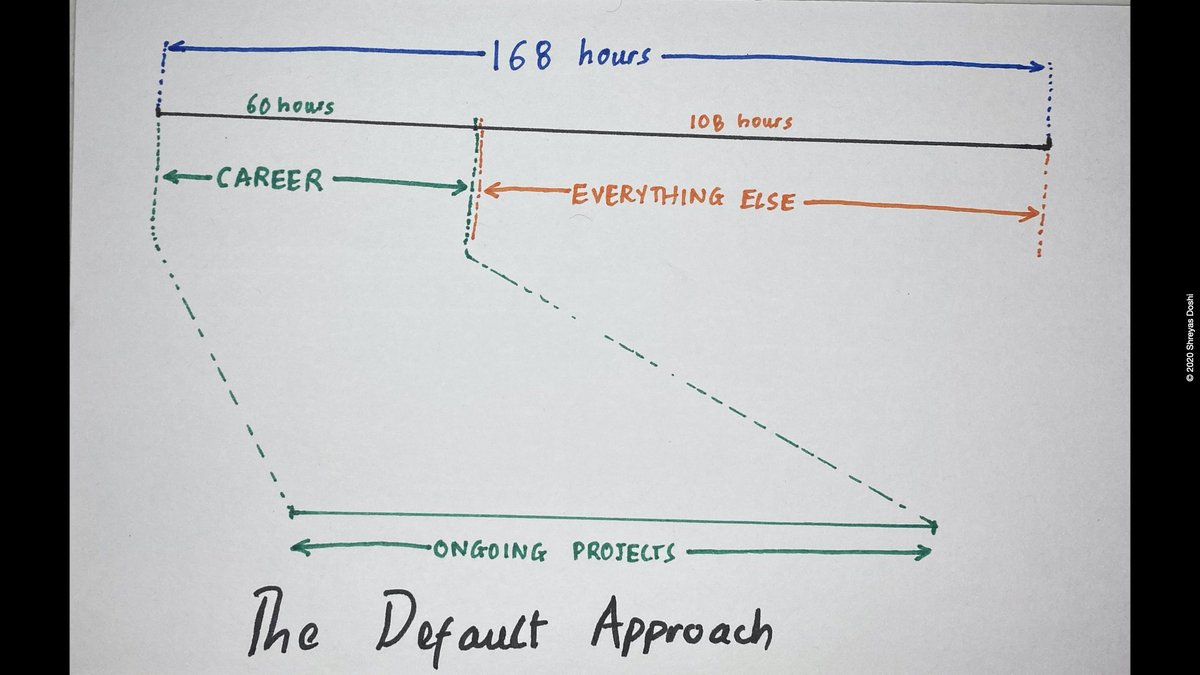
Here's what I've done over the past 17 years as a PM:
Don't allocate 100% of time to work projects
Allocate 10-20% of it to skills improvement
Remaining 80-90% on work projects
This investment makes me more effective & efficient at the 80-90% time I allocate to work projects
Don't allocate 100% of time to work projects
Allocate 10-20% of it to skills improvement
Remaining 80-90% on work projects
This investment makes me more effective & efficient at the 80-90% time I allocate to work projects
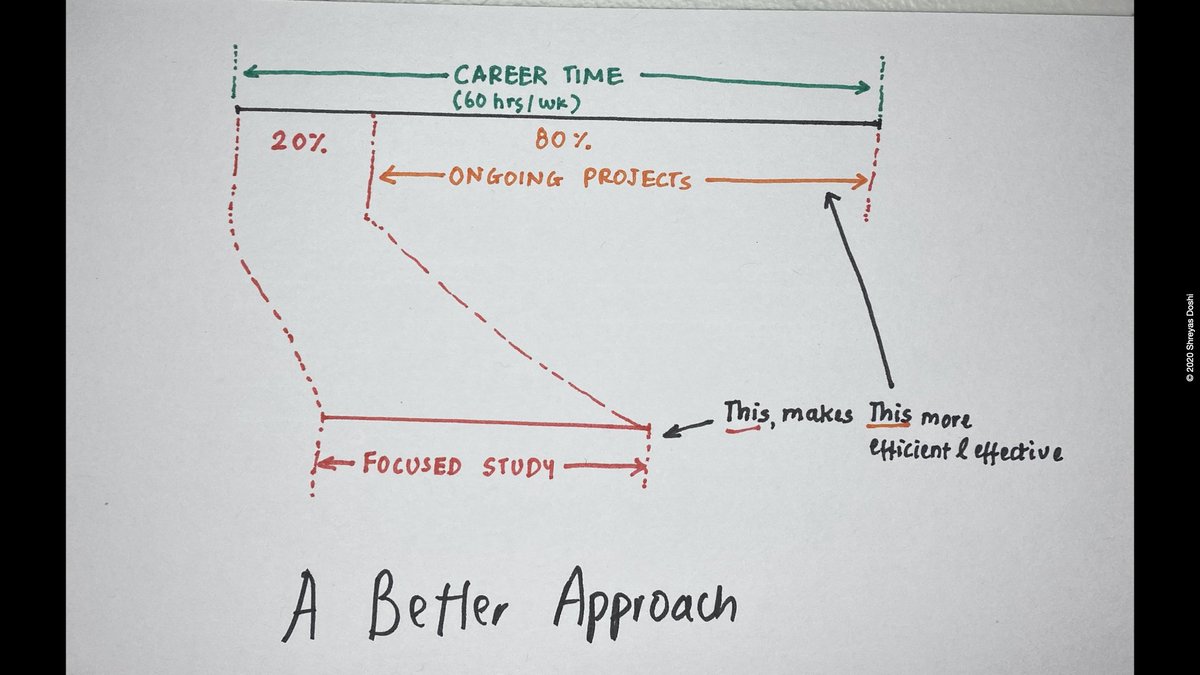
Of course, there will always be weeks or even months when this is just impossible to do. That is fine. Look for the right long-term ratio rather than having unrealistic expectations of being able to do this every single week of the year.
Don't have 10% time?
How about 5%? 2%?
Don't have 10% time?
How about 5%? 2%?
Principle 9:
Above all, have clarity on your holistic life priorities. Winning in your PM job but losing in your life ain’t worth it.
Your time is the most precious thing you have. So when you think about managing your time as a PM, think about it very holistically.
Above all, have clarity on your holistic life priorities. Winning in your PM job but losing in your life ain’t worth it.
Your time is the most precious thing you have. So when you think about managing your time as a PM, think about it very holistically.
So for this last principle, I will leave you with my personal heuristic for life success that I can evaluate month-to-month, year-to-year, instead of waiting for the end of my life to evaluate whether I was successful (because at that time, I know I won't care about success):
What is success?
Stack rank these by personal priority
- Family
- Career
- Health
- Friends
- Interests
- Community
Having the freedom to spend all the time that I'd like to spend on my Top 3 priorities means that I am successful.
Cannot have it all & that's OK.
You do you💙
Stack rank these by personal priority
- Family
- Career
- Health
- Friends
- Interests
- Community
Having the freedom to spend all the time that I'd like to spend on my Top 3 priorities means that I am successful.
Cannot have it all & that's OK.
You do you💙
To recap the 9 principles
1) Scope kills brute force
2) Calendar > to-do list
3) Embrace LNO
4) Reject Proof of Worth
5) Love Radical Delegation
6) Make time for insight
7) Think Opportunity Cost, not ROI
8) Grow so you can create time
9) Take the time to succeed in life
1) Scope kills brute force
2) Calendar > to-do list
3) Embrace LNO
4) Reject Proof of Worth
5) Love Radical Delegation
6) Make time for insight
7) Think Opportunity Cost, not ROI
8) Grow so you can create time
9) Take the time to succeed in life
Want to go deeper into these principles?
I am doing a live session & Q&A with my super follower community tomorrow (⏰Sat 5:30 pm Pacific/Sun 7 am India)
Note: only senior PMs & product leaders should consider super following me. the content is less useful for early career PMs.
I am doing a live session & Q&A with my super follower community tomorrow (⏰Sat 5:30 pm Pacific/Sun 7 am India)
Note: only senior PMs & product leaders should consider super following me. the content is less useful for early career PMs.
Back to the top of this thread:
https://twitter.com/shreyas/status/1492345140492472321
Adding some more references and answers to people's questions below 👇🏾
First, how do I manage my to-do list?
I use Google Tasks, not because it is the best/most powerful, but because I don't like learning new products and Google Tasks is tightly integrated in Gmail.
First, how do I manage my to-do list?
I use Google Tasks, not because it is the best/most powerful, but because I don't like learning new products and Google Tasks is tightly integrated in Gmail.
I have a simple to-do list, with 3 sections:
THIS WEEK
LATER
SOME DAY
I move tasks between these buckets during my weekly planning on Friday evening & create a well-defined list for the THIS WEEK section.
I prefix each task with
L:
N:
O:
as a reminder of the type of task.
THIS WEEK
LATER
SOME DAY
I move tasks between these buckets during my weekly planning on Friday evening & create a well-defined list for the THIS WEEK section.
I prefix each task with
L:
N:
O:
as a reminder of the type of task.
Slack is a large part of how PMs do their work these days. IMO, most senior product folks use Slack (or similar products) incorrectly. They spend way more time on Slack than they should, preventing them from focusing intensely
Heres how I deal with Slack:
Heres how I deal with Slack:
https://twitter.com/shreyas/status/1436755374560792576
This checklist of questions (if answered thoughtfully and honestly) can help product leaders with finding greater focus:
https://twitter.com/shreyas/status/1484604708152958979
On the topic of focus, here is a simple tactic I have found extremely useful:
Every 1st of the month, think for 1 hour about my personal top 3 priorities
Write these 3 priorities down on a post it note
Stick it on my monitor
Constant reminder to focus & self-accountability
Every 1st of the month, think for 1 hour about my personal top 3 priorities
Write these 3 priorities down on a post it note
Stick it on my monitor
Constant reminder to focus & self-accountability
Useful to review this thread, for more on Principle 8:
https://twitter.com/shreyas/status/1444715650505605121
• • •
Missing some Tweet in this thread? You can try to
force a refresh



